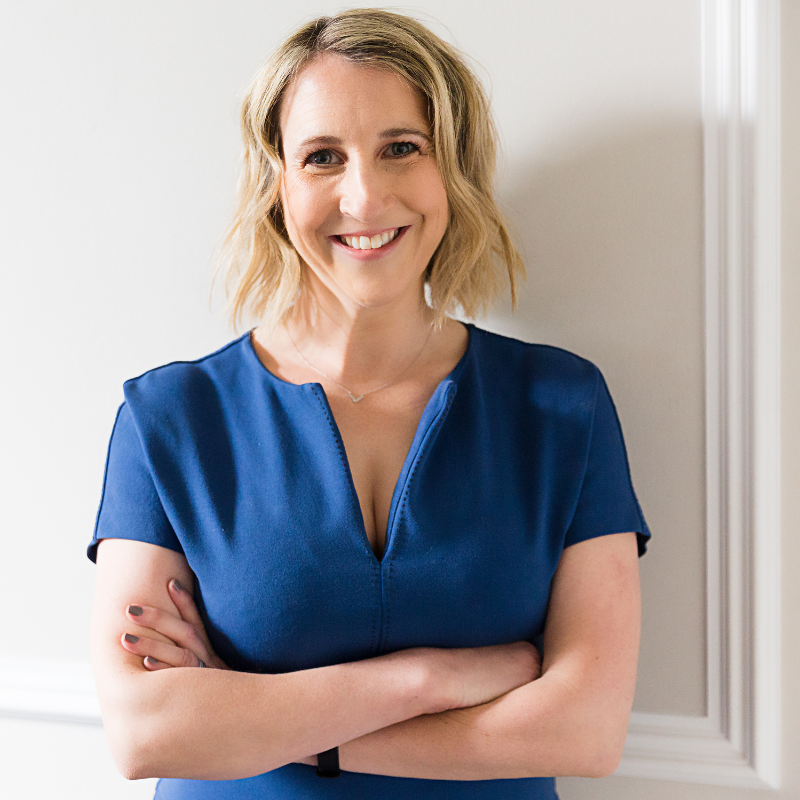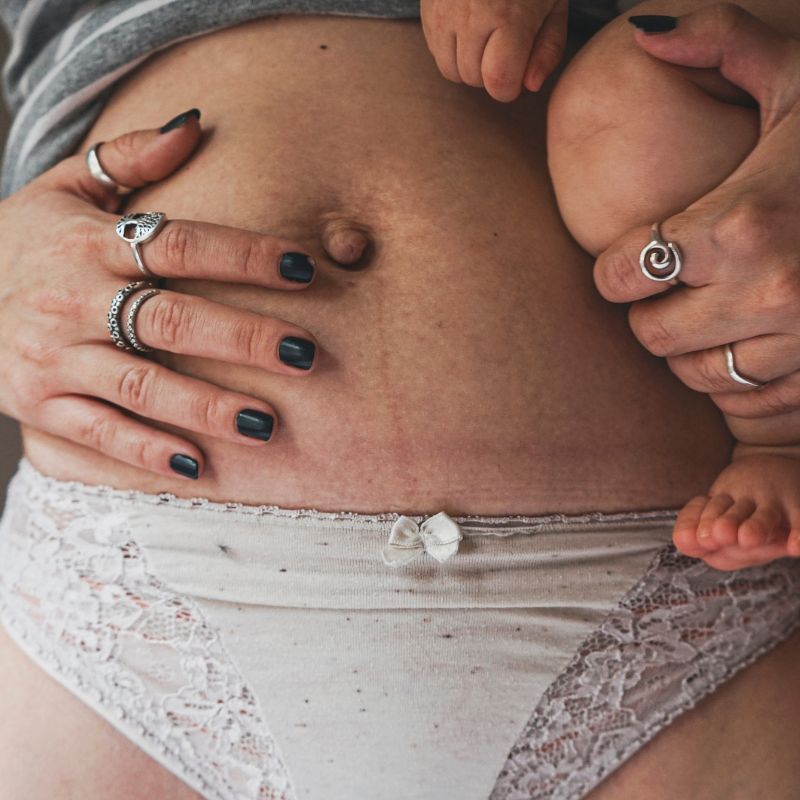Chances are, if you’re reading this, you’re pregnant. Or, you’re planning to get pregnant. Or someone close to you is pregnant. Whatever the circumstance: congratulations!! Growing a baby in your belly is an amazing, exciting (and, yes, slightly nerve wracking!) experience. We get that! We’re parents here too at Kendamil; which is why we’re writing this blog. To help you make sense of it all. 💙
✨ And it’s completely normal to not make sense of it all. At least not right away! ✨
After all, when you’re pregnant, your body is going through the ultimate transition. And because the KendaTeam are fellow mums too, we’ve been there. We know what that’s like.
So if the question “I’m pregnant… now what??” is circling through your mind, fear not. We’re here to help quell your fears and jog your excitement. So, sit back, take a breath, grab a beverage and give this a read.
🎉🎉🎉 WE’RE SO EXCITED FOR YOU!
This is a wonderful time for you, filled with new, amazing experiences! We hope you’re feeling happy and excited, because we sure are! And, at the end of it all: you’ll have your own little bundle. Trust us: it’s the most precious, amazing experience in your entire life.
But, of course, that’s not to say that you shouldn’t feel those twinges of nervousness and overwhelm. Once the initial excitement subsides, it’s completely normal to be out of your element. Everyone experiences some level of stress when they’re going to have a baby - and it’s perfectly okay to allow yourself time to pause, breathe and remind yourself that you’re human and you’re allowed to make mistakes.
All in all, while we’re reminding you that you’re allowed to be happy (and even proud!) of yourself, It’s ALSO very important to be kind to YOU. And to remember that you have plenty of time to figure out the next steps.
And, because we’re parents and caregivers too, trust us when we say we get it, you’re not alone and EVERY single emotion you’re probably feeling - we’ve felt too. We got through it. So can you!! And we're here to guide you along the way, with our top tips...
👩⚕️ Some things to expect while expecting…👩⚕️
One of the first things to do when you find out you’re pregnant is to make an appointment with a healthcare provider. This may be as simple as calling up your GP.
During pregnancy, you will be having routine checkups, so it’s important to find someone you feel comfortable with. Be sure to schedule time with your doctor, midwife, and obstetrician. According to NHS guidelines, you’ll be spending most of your pregnancy with a midwife, who will check on the health of your baby, at regular intervals. Down the line, you’ll also have a chance to meet with your obstetrician.

Here’s an example of your typical pregnancy-timeline:
⏰ ✔️ When you first find out that you’re pregnant you’ll want to contact your GP (who may then connect you with a midwife). You’ll be informed on the following:
⏰ ✔️ By 8-12 weeks you’ll have had some screening tests (particularly for the health of your foetus) and you’ll receive some bespoke advice on your antenatal care, breastfeeding preparation, diet and lifestyle, and more.
⏰ ✔️ By 8-14 weeks, you’ll have your first ultrasound scan.
⏰ ✔️ At 16 weeks you’ll have an antenatal healthcare review of all your foetus screenings.
⏰ ✔️ At 20 weeks you’ll have a second ultrasound scan. This is known as your 20-week screening scan. This test is highly recommended, to reduce the risk of passing down any infections.
⏰ ✔️ After the halfway point, up to your 42 weeks (give or take some time…) you’ll continue to receive regular check-ups, especially if this is your first baby. Your antenatal healthcare provider will decide when these check-ups happen and how often, according to what they feel is best.
Here are some things you should expect, down your pregnancy road:
🤔 What can you do to help yourself during your pregnancy? We’ve compiled our top 8 tips! 🤗
1. Start taking prenatal vitamins (if recommended)💊

We always recommend talking to your GP or midwife about prenatal supplements. They will offer you the best advice for your specific needs.
As a rule of thumb during pregnancy, your body requires higher amounts of certain vitamins and minerals. Any multivitamin that is marketed as a prenatal vitamin should contain all that you need, in the correct quantities, but just be sure to check that folic acid is included.
Ideally, pregnant women should increase their daily folic acid intake from 400 micrograms to 600 micrograms. Folic acid has a significant role in the development of your baby’s spinal cord and central nervous system, and helps prevent neural tube defects.
2. Be prepared for pregnancy symptoms 😭 🤗 😡

Hormones. Don’t we love ‘em?
Everyone experiences pregnancy differently - but hormones are to be expected. Pregnancy involves significant physical changes to your hormones, water retention and fat distribution levels (among other changes…swollen feet, anyone?) so it’s natural to experience some challenging symptoms as a result. These include nausea, constipation, tiredness, sadness, anger, arousal, swelling and sore breasts, as well as frequent trips to the bathroom!
Morning sickness is a particularly common bane of our life. Symptoms such as nausea and vomiting (oh, and lets not forget headaches, queasiness and dizziness) in the early weeks of pregnancy can leave you feeling weak, unwell, tired and dehydrated. Try eating numerous small meals throughout the day, instead of three large meals, keep sipping on water and opting for foods that are high in protein but low in fat.
Nausea SHOULD pass in due time! For most women, morning sickness ends once you get into the second trimester. However, if you’re experiencing severe ongoing symptoms, especially past the first trimester, it’s a good idea to book an appointment with a GP or midwife.
3. Set yourself up for a good night’s sleep😴

Sleep can be a challenge during pregnancy, when you most need it. Trust us, we know!
Sleep-problems are especially prevalent during the later months, when you have pain, aches, swelling, hormones and mighty levels of water-retention to worry about. If you’re having trouble getting a good night's sleep, then a full-body pregnancy pillow might be worth a try. These are specifically designed to help give you a good night’s sleep and can be a worthy investment.
It’s typically recommended that pregnant women sleep on their side (ideally the left side) after 20 weeks. This is because sleeping on your back causes the weight of the uterus to compress the blood flow of the inferior vena cava (that’s a vein that carries deoxygenated blood to the heart). Chances are, by the second half of your pregnancy, you’ll find side-sleeping to be the most comfortable position, anyway.
Top tip? Placing a pillow beneath your bump and one between your knees can make for a more comfortable, supported sleep. If your lower back bothers you, place another pillow between your knees to keep your spine straight. Invest in a good mattress and comfy pillows if you can. As mentioned above, a full-body pregnancy pillow can also be a GREAT help for a restful night’s sleep. Experiment with different side-sleeping positions and don’t be afraid to use as many pillows as possible to ensure you’re comfy!
If you’re really struggling to sleep, a trip to the GP for supplements, herbal remedies and at-home recommendations might do the trick.
4. Aim for a healthy diet 🍲 🥕🥒

It’s always good to strive for a healthy diet, and eating nutritious foods is especially vital when you’re pregnant. Yes, we know those cravings can get CRAZY. Feel free to indulge (within reason…). But also remember, you’re growing a baby - and that requires maximum health, strength and energy. Talk to your healthcare provider about your diet plan, and they should be able to help steer you in the right direction.
As a rule of thumb during pregnancy, your body requires more protein, iron, calcium, and folic acid. You don’t need to go on a specific diet per se, but keep making sure you’re eating enough fruits and vegetables and try to avoid heavily processed, sugary foods. Listen to your body and make sure to drink plenty of water!
If you eat meat, make sure that it is cooked thoroughly, to eliminate the risk of toxoplasmosis. For the same reason, also be careful with cured meats such as salami, prosciutto and chorizo.
It’s best to avoid certain types of cheese, such as mold-ripened soft cheeses (brie, camembert), soft blue cheeses (gorgonzola, danish blue, roquefort), and goat’s cheese. These cheeses can be safe to eat if cooked until piping hot, but if left uncooked, there is a risk of listeriosis.
This is also the time to cut back on caffeine, and, most importantly, to stop smoking and drinking alcohol. According to NHS guidelines the foods to avoid during pregnancy are:

5. Balance your energy: take time to exercise AND rest!🏃🏿♀️ 🥱

When it comes to exercise, it’s generally safe to continue your normal daily physical activity or exercise routine for as long as you feel comfortable doing so. However, we thoroughly recommend double checking what exercises are safe to do with your healthcare provider.
Here’s some things that the NHS guidelines suggest:
- Always warm up and cool down before and after exercise.
- Try to keep active in any way you find beneficial - a daily walk is enough!
- Don’t strenuously exercise in hot weather!
- Drink PLENTY of water.
- If you’re doing classes, ensure your trainer or teacher is properly qualified to teach pregnant people AND knows that you’re pregnant (and how many months along you are too),
- Try swimming or aqua-natal classes - the water can support your increased weight to make exercising a little easier for you.
If you didn’t exercise before you were pregnant, it’s not recommended to embark on an intense exercise routine. This is purely because your body won’t be used to intense exercise. Instead, start slowly with gentle, low-impact exercise such as walking, swimming or prenatal yoga.
Regardless of how active you were before becoming pregnant, it’s best to steer clear of activities in which you could get hit in the abdomen (kickboxing, football and so forth), as well as those that have a high risk of falling (horseback riding, gymnastics, downhill skiing… all no-nos!).
Don’t lie flat on your back (especially if you’re 16 weeks and over) and don’t take this time to try your hand at scuba diving or scaling heights (basically avoid any sport which involves changes in decompression or altitude).
Above all, please be sure to listen to your body. Rest WHENEVER you feel tired. And, remember, exercise is there to make your body feel good, boost your serotonin and keep you nice and strong. Don’t strain yourself and certainly don’t criticise yourself if you find that you’re struggling with activities you used to be able to do.
The lowdown? Growing a baby takes energy - mental AND physical! Do what you can, be kind to yourself and nurture your body and mind in a way that works for YOU.
6. Figure out how and when you’ll tell people you’re pregnant!😲

How and when you decide to share the news of your pregnancy is totally up to you.
You may want to tell close friends and family straight away (although many women decide to wait until after the first trimester, when the risk of miscarriage drops significantly). Some people choose to break the news to close family members by giving them a little keepsake, such as a framed ultrasound photo or a personalised “Grandparent-to-Be” mug (‘some people’ includes us, of course!).
Besides the excitement of telling your loved ones, there are other considerations to keep in mind. For example, if your job involves strenuous manual labour, or if you work in a healthcare setting, then it’s important to let your employer know so they can make any adjustments necessary for your safety. This also applies to people who work in a particularly stressful or high-pressure environment.
Depending on your employment situation and work culture, it may be somewhat nerve-wracking to tell your boss that you’re pregnant. Make sure that your boss is the first person at work to hear about your pregnancy, and get prepared before sitting down to discuss the news. If possible, brush up on your company’s policies on flexible working hours and maternity leave.
Consider some of the details about how your co-workers can cover for you when you’re gone, and when (if!) you’d like to come back.
7. Start thinking about baby-feeding options 🍼 🤱 ❓

Deciding how you’re going to feed your baby is an important personal choice. Make sure you discuss your options with your partner and healthcare provider.
If breastfeeding is right for you, then consider booking onto breastfeeding support with your midwife or GP. This is personalised advice, conducted by trained healthcare professionals and volunteers, to help you make the most out of your breastfeeding journey. If feeding by formula, or combination feeding, is the way forward for you, please chat to your healthcare provider so they can cover all the basics with you.
It’s good to be knowledgeable about your baby-feeding options. Thankfully, our selection of #informedisbest blogs, which cover a range of different ways to feed your baby are GREAT ways to brush up on your feeding knowledge. 👉
🤱 🍼 The combination feeding blog🍼
8. Above all: look after yourself!! 💙 ✨
If nothing else, remember that pregnancy is a period of intense change; you need to be gentle with yourself! Here at Kendamil, we’re all about being kind, compassionate and giving yourself some grace.
Pregnancy can bring up a host of powerful emotions. You may be feeling anxious or overwhelmed about physical changes, adapting to a new lifestyle, and the upcoming responsibilities of having a baby.
Tell those close to you how you are feeling so that you can feel supported. And if you’re worried about your mental health, don’t hesitate to check in with your antenatal healthcare provider to get the help you need. It’s alright not to feel overjoyed all the time when you’re pregnant, and it’s important to realize that you don’t have to struggle with these difficult emotions alone.
We recommend clicking this NHS link, for all things pregnancy and mental health. There’s no harm in chatting to a professional about your fears, worries and anticipations. This is a period of transition and it will take some getting used to.
Good luck, and happy pregnancy, KendaFamily. We have all the faith in you. You can do this!! ✨✨✨
✨ Need some pregnancy help and support?? That’s what we’re here for! ✨
Our customer support team of mums and dads have helped thousands of parents. We're here for you!
< Reach out to a fellow mum or dad here >
For more support on all things pregnancy, why not check out our adjacent blogs? We feel these will help you brush up on the basics. Check ‘em out!!
🤰🏽 Preparing for labour.🤰🏽

















